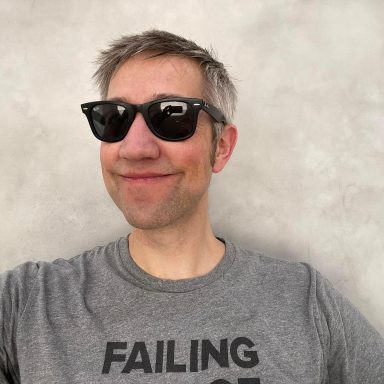Harry Potter Movies, Ranked
The books are the most ingeniously plotted fantasy novels ever written, and a pre-digital publishing phenomenon that can never be repeated
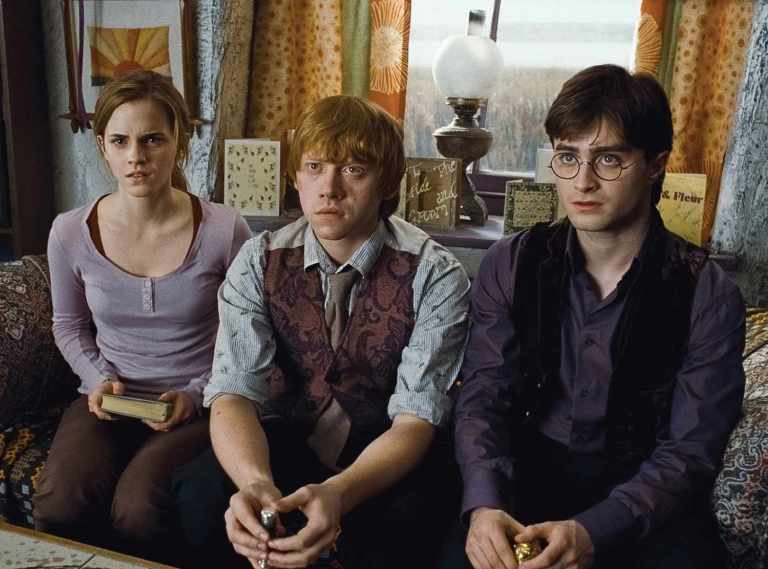
J.K. Rowling’s unapologetic transphobia is making it hard for fans to stomach her continuing attempts to expand the Wizarding World, but it can’t erase the impact of her original Harry Potter series: the most ingeniously plotted fantasy novels ever written, and a pre-digital publishing phenomenon that can never be repeated.
While the film adaptations aren’t as outstanding in their medium as the books are in theirs, the blockbuster adaptations are seared into the collective memory of a generation. There’s no feature film series quite like it, with a core cast of child actors who remained tied to the franchise for a decade. Viewers watched Daniel Radcliffe, Emma Watson, and Rupert Grint grow up together. The moving 2022 reunion special (made, pointedly, without putting Rowling on screen) demonstrated just how resonant the movies remain in their own right.
That said…some are better than others. Here’s a ranking of the films, from least to most effective. (It’s impossible to avoid plot details when discussing these intricate movies, so here’s your spoiler alert if you haven’t seen them yet.)
8. Harry Potter and the Deathly Hallows — Part 1 (2010)
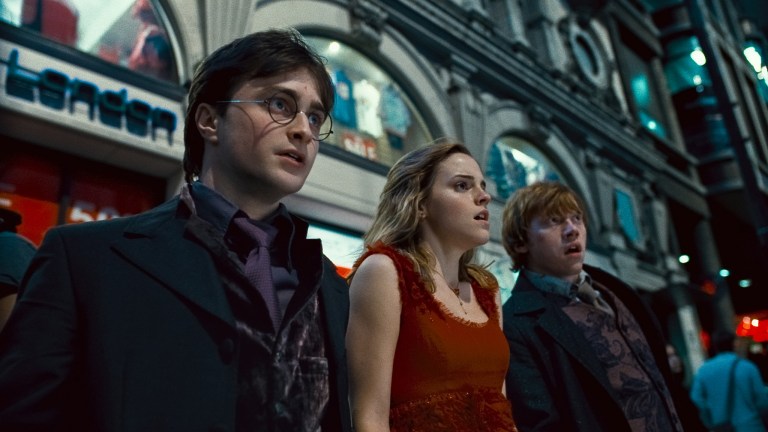
It probably made sense to split the seventh book in the series into two installments, but as Peter Jackson demonstrated with his bloated three-part Hobbit adaptation, more is not always more when it comes to putting books on screen.
Director David Yates and screenwriter Steve Kloves also ran up against the laws of storytelling physics — or, as the case may be, metaphysics. By this point in the series, the plot developments rely on such intricate elements of the Wizarding World, this film is all but incomprehensible to the casual viewer. That gives this installment a perfunctory feeling, as if it merely exists to illustrate the book.
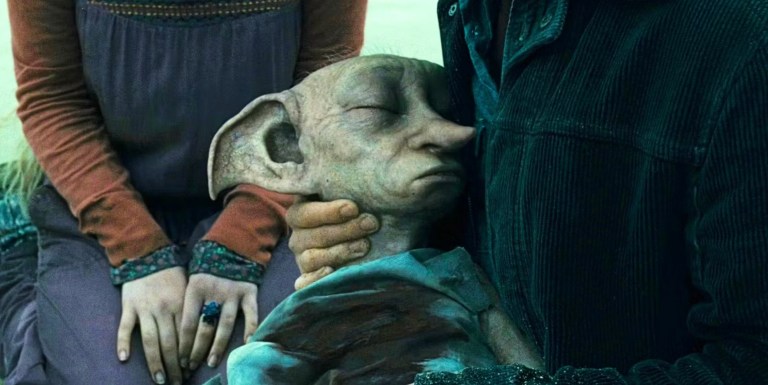
Nor are those illustrations particularly effective. The dyspeptic dynamics among the stressed-out friends lead to awkward moments, most notably the excruciating emo dance scene and the infamous nude ghost makeout. As key characters begin to die by way of raising the stakes, it’s asking a lot to stake this movie’s climax on the demise of divisive Dobby, after iconic owl Hedwig is dispatched straight away. There’s a reason the films’ signature music cue is titled “Hedwig’s Theme,” not “Dobby’s Theme.”
7. Harry Potter and the Chamber of Secrets (2002)
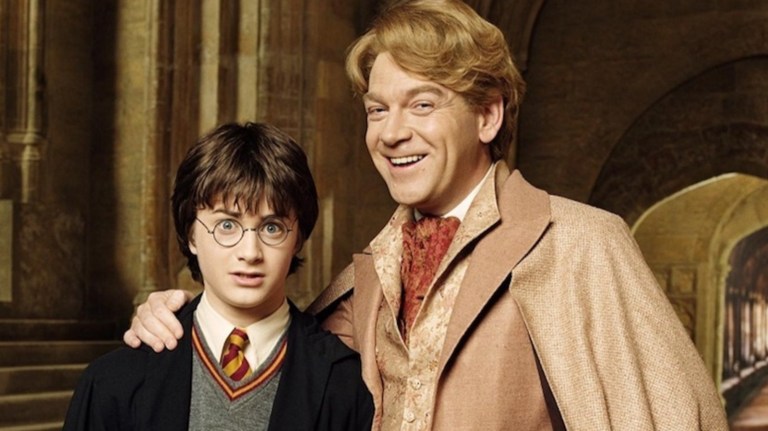
While the movies have distinctive qualities of their own, it’s impossible to entirely separate the individual features from the strength of their source material, and Chamber of Secrets is the least ambitious of the original books. To the extent that any of the novels just coasts, this is the one — and the movie does the same.
It does have a superbly cast Kenneth Branagh as the vain Gilderoy Lockhart, and director Chris Columbus creates some light thrills with the early scene in which the mischievous Weasleys ferry Harry to Hogwarts in a flying car. The polyjuice potion scene also plays well onscreen, allowing “impersonated” actors Jamie Waylett and Joshua Herdman to have some fun with the otherwise thankless roles of Crabbe and Goyle.
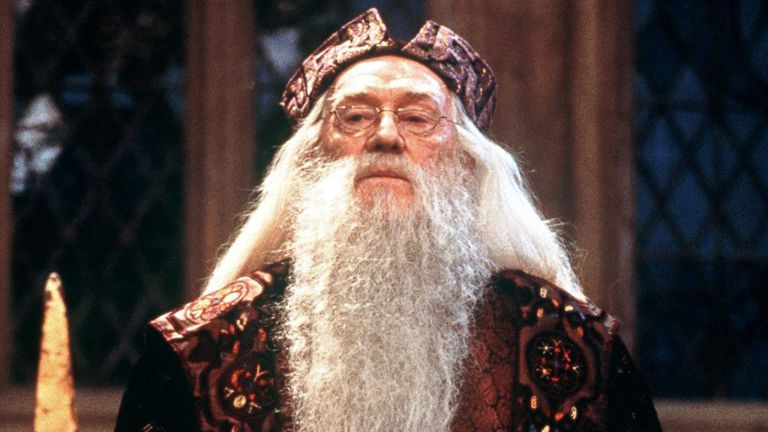
We get a hell of a lot of Dobby (voiced by Toby Jones), though, and the film is all too true to the irritating qualities Rowling gave to the unexpectedly pivotal house elf. The final basilisk battle is only serviceable, but the roles of Dumbledore and his trusty phoenix Fawkes are particularly poignant given that this was the final film for Richard Harris, who played the Hogwarts headmaster for the first two installments and died shortly before this movie’s release.
6. Harry Potter and the Deathly Hallows 2 (2011)
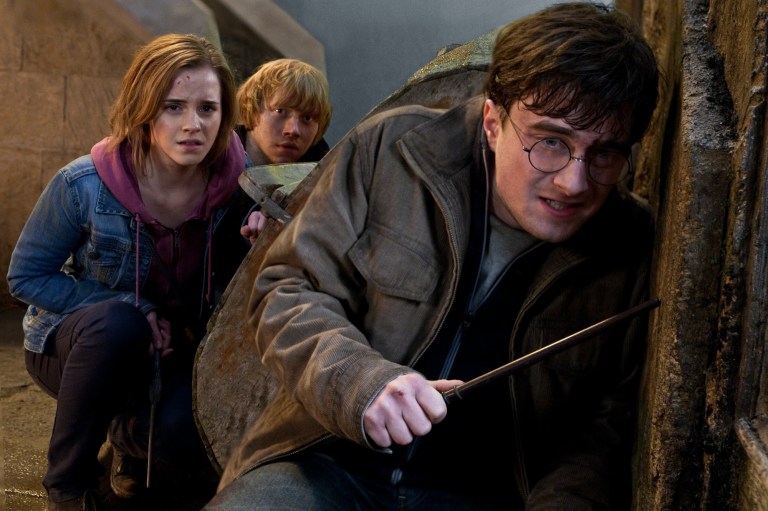
Doesn’t it feel like this final film should be ranked higher? For all the shudderingly significant things that happen on screen, this should be the Harry Potter movie that most requires a box of tissues and an emotional support animal. Yet, director Yates whiffs on many of his opportunities to stir the emotions.
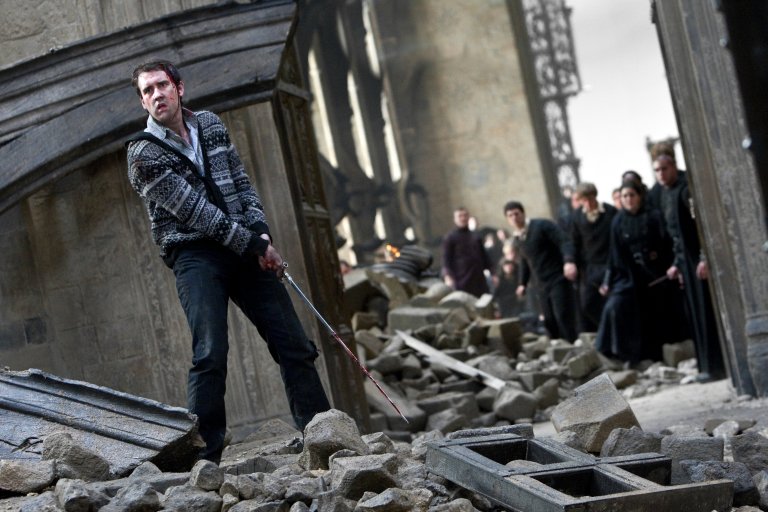
The rise to heroism of the beleaguered Neville Longbottom (Matthew Lewis, in a dramatic transformation) is an example of what this movie gets right: the stakes, and snakes, are clear when Neville grasps the Sword of Gryffindor and does what he must. Other key moments, though, are either rushed through (Molly Weasley’s seemingly effortless dispatching of the formidable Bellatrix Lestrange) or happen entirely off-camera (the deaths of multiple prominent characters). The mystical nature of Harry’s resurrection is also imprecisely handled, draining drama as the boy wizard hops up and scurries off.
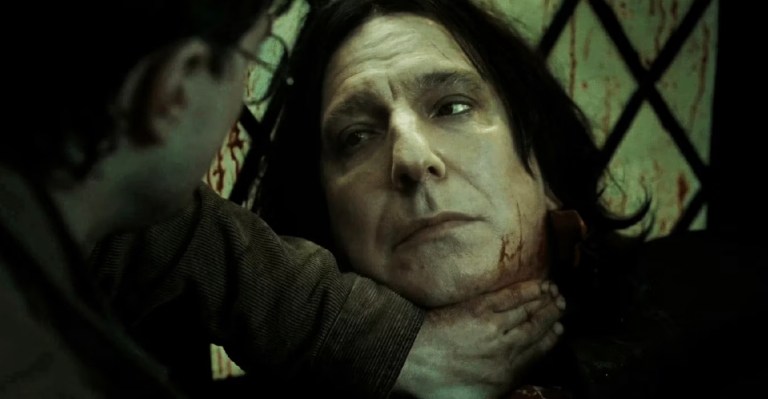
Yates and screenwriter Kloves do pull off a creditable screen rendition of the flashback montage revealing the true nature of Snape’s twisted character arc. Alan Rickman’s declaration of love for Lily Potter provides the one moment that rises above the muddy clamor in this largely unexceptional feature.
5. Harry Potter and the Half-Blood Prince (2009)
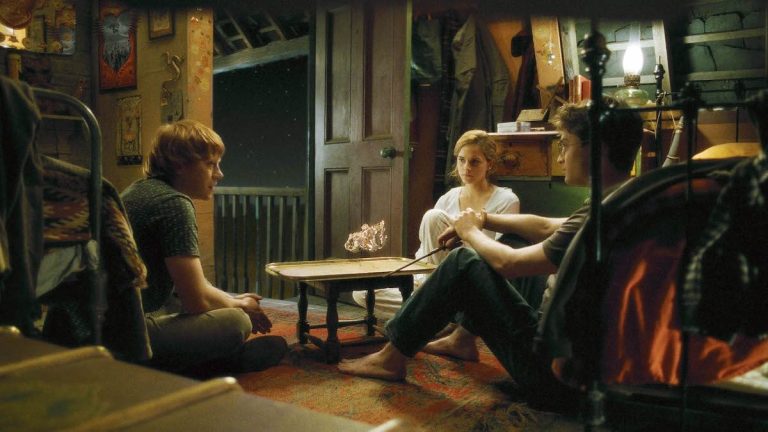
The narrative success of this movie, based on the penultimate Potter book, makes an argument against dividing Deathly Hallows into two installments. Director Yates and screenwriter Kloves are much more lucid in their storytelling here, with an escalating series of crises culminating in the unthinkable death of Dumbledore himself.
The filmmakers also manage to find some room for amusement — an increasingly scarce commodity as the Dark Lord’s clouds gather. The subplot involving Ron’s romance with Lavender Brown (a pitch-perfect Jessie Cave) provides some of the saga’s last grounding in realistic teenage turmoil before becoming a fully adult story of death and valor.
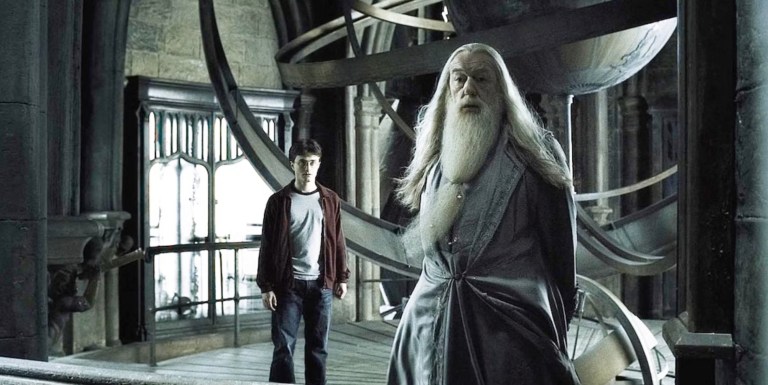
More happens in this film than you may remember, making it an installment that rewards revisiting. It’s also a stirring swan song for the late Michael Gambon’s Dumbledore, who returns posthumously in the final two films but is last seen here in living form.
4. Harry Potter and the Goblet of Fire (2005)
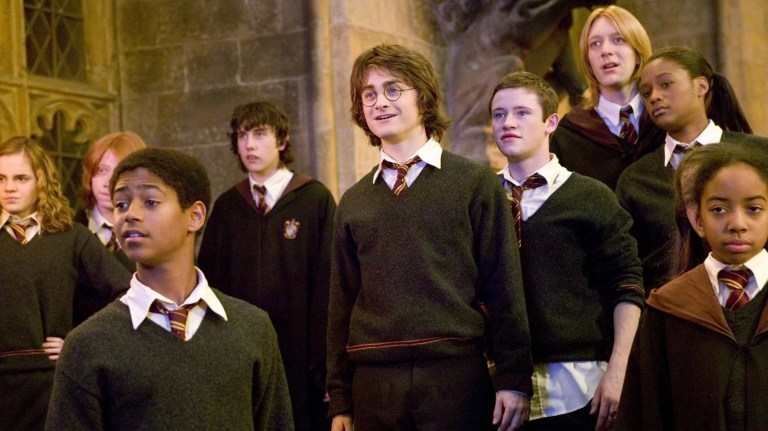
Just as it’s hard to make a great movie from a book that’s only meh, it would have been hard to really screw this one up: the adaptation of the pivotal book in the series, full of incredible world-building and rapidly rising stakes.
Director Mike Newell steers into the adventure aspect of the franchise, with the Tri-Wizard Tournament pushing the era’s special effects to their limit. In a series that sometimes struggles with convincing action set pieces, this film creates fluid and suspenseful excursions into a dragon’s lair and under the Black Lake waters.
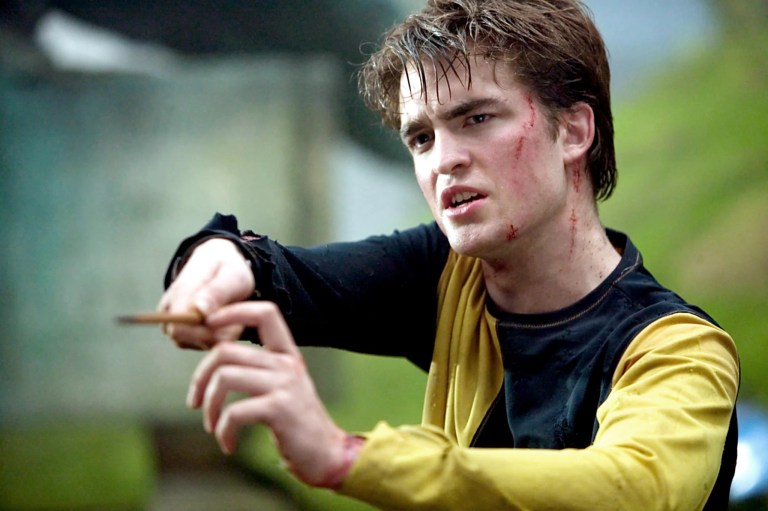
The climax, a gravesite confrontation turning on a surprise portkey, is appropriately macabre (try explaining this Lego set to a young child) and culminates in the films’ most memorable moment of mourning. Anyone who remembers what a revelation studmuffin Robert Pattinson was prior to the Twilight saga will relate to Cedric’s classmates’ sorrow at his untimely demise.
3. Harry Potter and the Order of the Phoenix (2007)
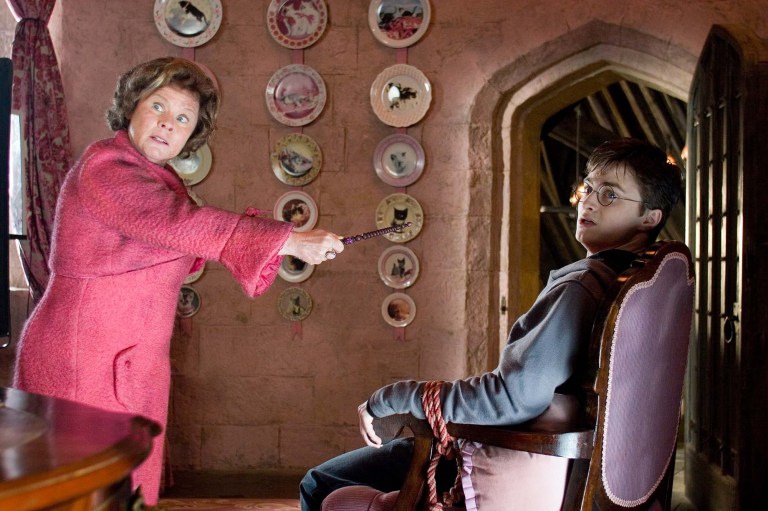
Two words: Dolores Umbridge. One of Rowling’s craftiest, cruelest creations, Umbridge is brought chillingly to life by the legendary Imelda Staunton. Her signature punishment — having students slash their own skin with a cursed quill — provides one of the most genuinely horrific touches in this largely family-friendly film series.
Here, director Yates imbues a climactic wizards’ battle with the stirring spirit the franchise’s overall finale lacks. Set in a subterranean chamber of the Ministry of Magic, all glassy surfaces and sharp points, this is where we finally see magical battle with the gloves off. There are key character moments for many of the stories’ biggest stars, including the savage killing of Harry’s godfather/dogfather Sirius Black (Gary Oldman).
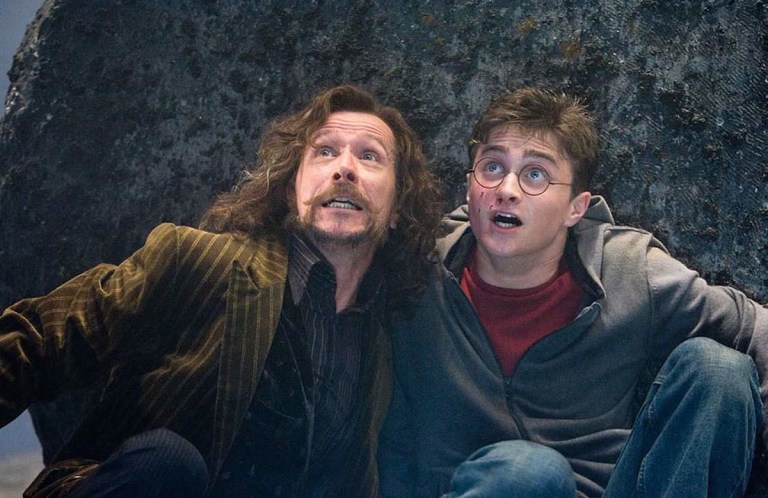
This movie abounds with other delights, including the debut of Evanna Lynch as the loopy Luna Lovegood; a Forbidden Forest confrontation with no-nonsense centaurs; and the final Hogwarts huzzah of Fred and George Weasley (James and Oliver Phelps). It’s a fully satisfying feature containing numerous series highlights.
2. Harry Potter and the Sorcerer’s Stone (2001)
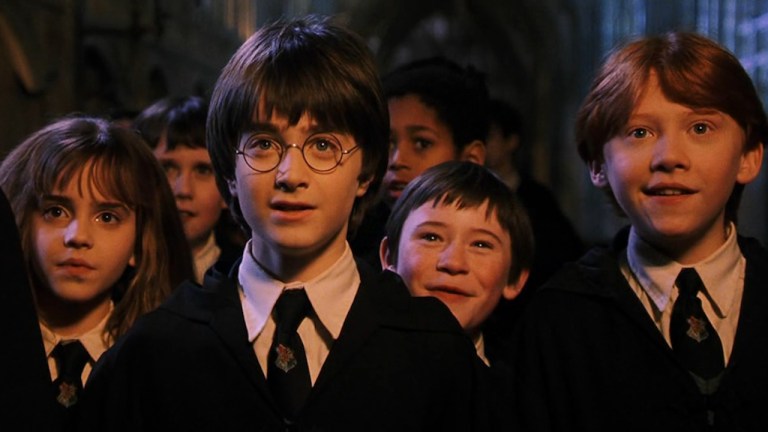
It’s cute, it’s cozy, it’s…well, it’s magical. While later filmmakers would realize the stories’ growing ambitions, the guy who directed Home Alone (Chris Columbus) was exactly the right choice for this first, crucial trip to Hogwarts.
Released in 2001, before the last three books came out — unlike George R.R. Martin, Rowling proved perfectly capable of staying ahead of the adaptations — this was the movie that demonstrated Hollywood was up to the daunting task of bringing Hogwarts to the screen. The decision to make the movies in the U.K. provided essential authenticity, with a production design that successfully evoked the depth and wonder of Harry’s new world.
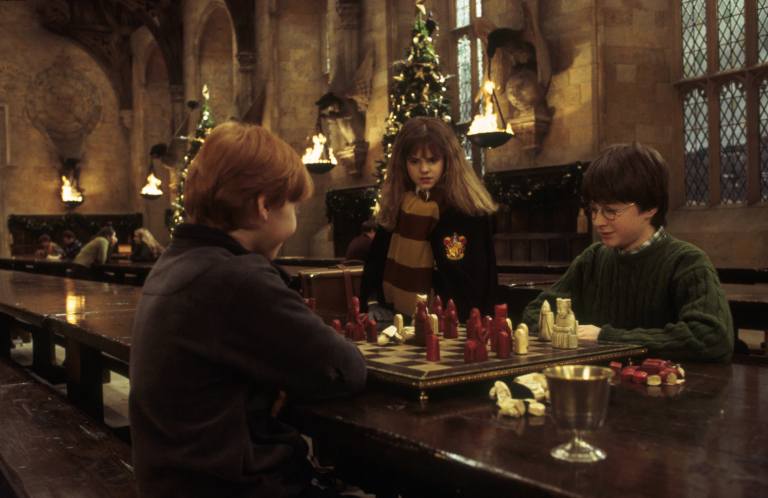
If Columbus and screenwriter Steve Kloves played it a little safe, no one was complaining. Rowling played the long game and took her time establishing the magical world, with this story having by far the lightest plot of the series. That makes this movie pure delight, a fizzy comfort watch with the fresh-faced cast at their most adorable. Then Harry kills a man, and we’re off to the races.
1. Harry Potter and the Prisoner of Azkaban (2004)
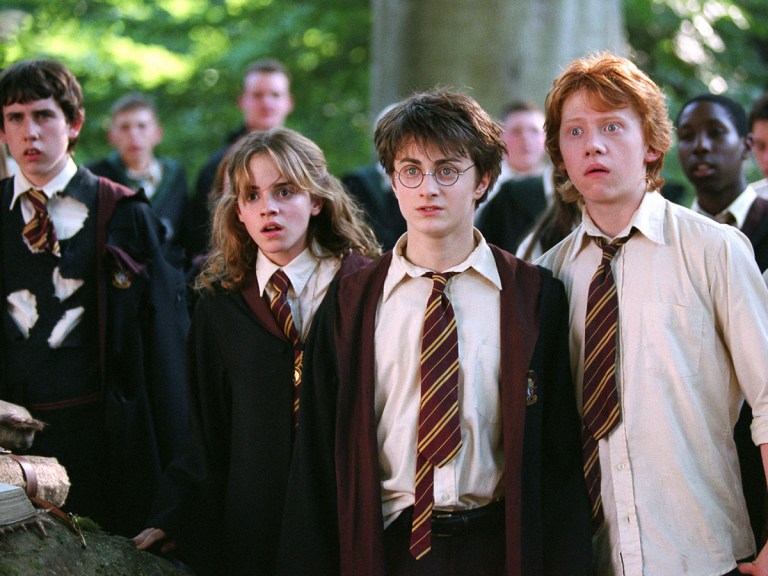
Alfonso Cuarón is a two-time Academy Award winner for Best Director. While neither of the awards was for this picture (hilariously, the first Wizarding World movie to win an Oscar was Fantastic Beasts and Where to Find Them), Cuarón’s most impressive filmmaking achievement may be the fact that he’s the only director to put a truly distinctive stamp on a series that’s rigidly clamped to its source material.
In taking the helm from Columbus, Cuarón hit a sweet spot in the story progression: advanced enough to have genuinely dark elements, but not so far along that the plots become labyrinthine and the beats of each school year start to break down. The film immediately stands out for the gorgeous blue-gray palette Cuarón and cinematographer Michael Seresin introduce, but what makes it so satisfying after repeated viewings is the director’s sure sense of both the brilliantly twisting storyline and the emotional beats that give it weight.
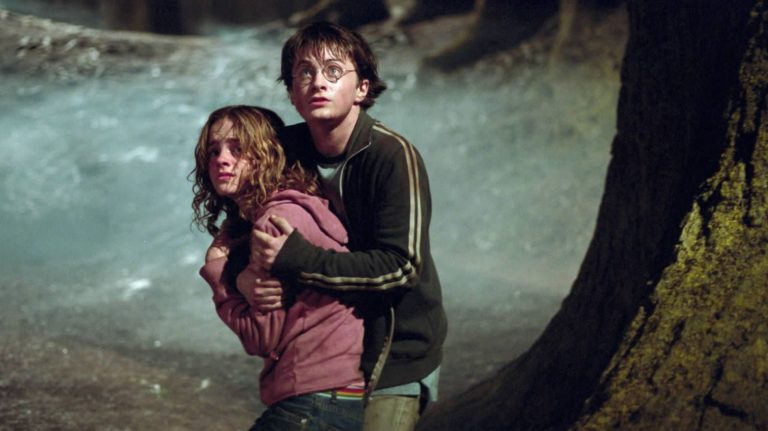
The film finds real poignancy in Hagrid’s quest to save Buckbeak the hippogriff, in Lupin’s hidden nature, in the wrongly imprisoned Sirius Black, and especially in the climactic Patronus scene: the most affecting, roundly satisfying moment in the entire series. Every one of these films has its virtues, but Prisoner of Azkaban takes the House Cup.
Further reading:
